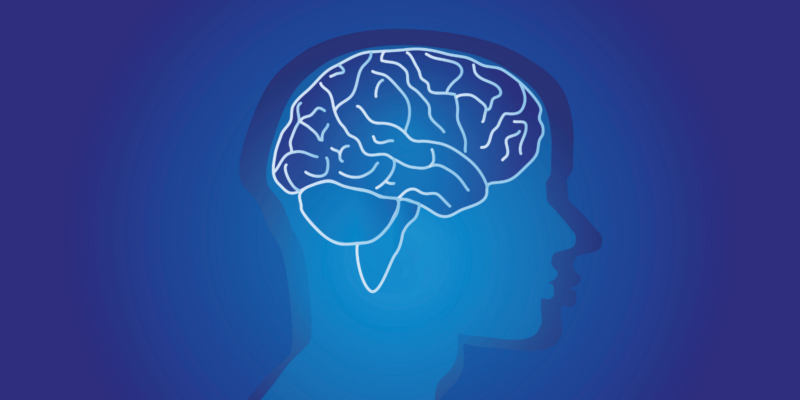Psoriasis is a chronic autoimmune condition of the skin, which results from a faster skin-cell cycle. The extra skin cells build up as red patches and scales, which may sometimes bleed or itch.
Psoriasis is not contagious. This means you cannot get psoriasis from being in close contact with person with psoriasis or from coming in contact with his/her clothes or other personal articles.
Like all autoimmune conditions, psoriasis occurs because of an interaction between genes (more than 80 susceptibility genes ((Ref)) have been identified) and the immune system, triggered by different environmental factors in association with gut barrier dysfunction.
What is lifestyle?
According to the Cambridge English Dictionary, lifestyle is someone’s way of living; the things that a person or a particular group of people usually do.
In this post I will consider the acronym SEMM under “lifestyle”:
- S-Sleep
- E-Eat (Food, drink)
- M-Movement/Exercise
- M-Mind-body Interventions
Sleep
Sleep is essential for health and well-being. However, the important questions in relation to psoriasis are
- Does shorter sleep duration worsen psoriasis?
- Do people with psoriasis have worse sleep?
Short Sleep Duration and Psoriasis
Many of you feel that your psoriasis symptoms are worse when you do not get adequate sleep; loss of sleep is a trigger for your symptoms. However, some of you feel absolutely fine even after all-nighters.
In an experimental model of psoriasis in mice, the authors found that sleep deprivation increases levels of inflammatory molecules (cytokines) which may worsen psoriasis symptoms. ((Ref))
We know that sleep and your immune system are intimately related. Lack of sleep worsens immune defence. ((Ref)).
BOTTOMLINE: Lack of sleep impacts many areas of your health. It may worsen your metabolism, make you gain weight, increase your levels of inflammation or worsen your mood. You need to figure out whether it triggers YOUR symptoms. However, prioritizing sleep is important because it affects everything else that affects your health.
Psoriasis Affects Sleep
About 85 % of people with psoriasis have sleep challenges. In fact, compared to controls, people with psoriasis are worse sleepers. ((Ref)). This may be related to the itching or joint pain (psoriatic arthritis), however, disease severity doesn’t always relate to sleep quality.
On an online survey of about 3000 people with psoriasis,((Ref)) they found that sleep quality was worse in
- Those with psoriatic arthritis, more so in women.
- People who were overweight
- People with Obstructive Sleep Apnoea (OSA)
- Severe disease symptoms.
Eat: Alcohol, Food And Psoriasis
- Alcohol
- Gluten-free Diet
- Low-calorie Diet
- Mediterranean Anti-inflammatory Diet
- Ketogenic Diet
Alcohol
A study reported in JAMA Dermatology, 2017 ((Ref)) set out to answer the question,” “Do people with psoriasis have an elevated risk of alcohol-related mortality?” This study was population-based, therefore it included a large number of people. What did they find?
During a 6 year followup, people with psoriasis have a 60% greater risk of dying due to alcohol-related causes when compared to people without psoriasis.
More than 80% of the alcohol-related deaths were from alcoholic liver disease or cirrhosis and liver fibrosis. Additionally, increased alcohol intake was also related to greater body surface area affected by psoriasis.
How do we explain this finding?
The exact cause is not known, however, one possible explanation is that people with psoriasis have higher psychological distress because of the nature of the condition. Some people feel stigmatized, particularly if they have lesions that are visible. Because of the psychological distress, some people may resort to alcohol as a coping mechanism.
A second explanation is very interesting! Using a transdermal alcohol monitoring device, this study found that skin alcohol concentrations can reach levels that increase levels of inflammatory molecules (cytokines). Higher inflammation can worsen psoriasis symptoms. ((Ref))
Is Alcohol A Trigger For Symptoms?
Some of you feel that alcohol, even an occasional drink, makes your symptoms worse. While others report no change in psoriasis symptoms even with heavy drinking. Therefore, you need to figure out what works best for you.
Alcohol And Anti-Psoriasis Drugs
Several anti-psoriasis drugs, such as methotrexate, retinoids, and anti-TNF drugs, are known to be associated with liver toxicity. There is some data to show that people with psoriatic arthritis have a higher risk of methotrexate-related liver toxicity. ((Ref))
The important factor to keep in mind is that each person may metabolize drugs differently. Some of it is related to minor genetic variations in drug-metabolizing enzymes. ((Ref))
Bottomline:
- It is important to consider your alcohol intake in the context of your psoriasis. Whether alcohol is a problem or can you drink responsibly is something that you need to discuss one-on-one with your provider.
- For the provider, it is important to discuss alcohol intake as a part of a clinical review. However, it may sometimes fall off the radar during hurried consultations.
- Alcohol impacts several health areas, particularly your risk for heart disease, weight-loss, mental health conditions and many more.
- It is important to monitor liver enzymes when taking anti-psoriasis drugs.
Food
One of the commonest questions that I am asked is “Doctor, what should I eat?” On numerous surveys of people with autoimmune conditions, (not just psoriasis), people want to know what diet is best for them. While there is no “psoriasis diet”, one factor has come up repeatedly in numerous studies.
Weight loss impacts your psoriasis symptoms and it may affect your drug response as well.
Are Gluten-Free Diets Helpful in Psoriasis?
Psoriasis is associated with several autoimmune conditions, like celiac disease, Hashimoto’s Thyroiditis, Inflammatory Bowel Disease (IBD) and many more. The link between psoriasis and other autoimmune conditions may be through shared inflammation and genetic pathways between them. ((Ref))
Several people with psoriasis may be positive for celiac antibodies. A gluten-free diet may be beneficial for people with psoriasis. ((Ref))
Should you stop eating gluten?
Bottomline:
If you have celiac disease or non-celiac gluten sensitivity, you will benefit from a gluten-free diet.
Weight Loss And Psoriasis
Excess body weight is associated with worse outcomes in people with psoriasis. The higher the bodyweight the more extensive the psoriasis lesions and poorer response to some anti-psoriasis drugs. ((Ref)) ((Ref))
How Much Weight Loss Makes A Difference?
In a study that looked at people with psoriatic arthritis on treatment with TNF-alpha blockers, weight loss of 5% was related to better treatment response. 5% means losing about 4.5 kgs if you weigh 90 kgs. This means you will see benefits with relatively smaller weight loss, even if you do not achieve your optimal body weight. ((Ref))
What Type Of Weight-Loss Diet?
There is no consensus on whether a low-calorie, low-fat diet or a low carbohydrate diet works best in overweight people with psoriasis. The reason is that low-carbohydrate or ketogenic diets haven’t been tested in people with psoriasis in large clinical trials.
Low-Calorie Diet for Weight Loss in Psoriasis
Numerous trials have shown the benefits of using a low-calorie diet (800-1000 calories a day) along with medications in the treatment of psoriasis. ((Ref)) ((Ref)) .However, weight loss alone may not be enough as the only mode of treatment in people with moderate or severe disease. ((Ref))
Mediterranean Anti-inflammatory Diet And Psoriasis
What is the Mediterranean Diet (Med Diet)? A Med Diet is one that includes “real” food like vegetables, fruit, fish, meat and legumes, nuts and extra-virgin olive oil.
What Does A Med Diet Leave Out? There are numerous studies showing the benefits of a Med Diet in health. However, the benefits very likely result from what is left out rather than what is included.
The Med Diet excludes or minimizes sugar, processed meat, sugar-sweetened beverages, cakes and cookies (biscuits).
As you can see in the image below, using a 14 Item Questionnaire ((Ref)) your diet can be assessed to find how close it is to a Mediterranean Diet.
| QUESTIONS | CRITERIA FOR 1 POINT |
| 1. Do you use olive oil as the main culinary fat? | Yes |
| 2. How much olive oil do you consume in a given day (including oil used for frying, salads, out-of-house meals, etc.)? | ≥4 tbsp |
| 3. How many vegetable servings do you consume per day? (1 serving : 200 g [consider side dishes as half a serving]) | ≥2 (≥1 portion raw or as a salad) |
| 4. How many fruit units (including natural fruit juices) do you consume per day? | ≥3 |
| 5. How many servings of red meat, hamburger, or meat products (ham, sausage, etc.) do you consume per day? (1 serving: 100–150 g) | <1 |
| 6. How many servings of butter, margarine, or cream do you consume per day? (1 serving: 12 g) | <1 |
| 7. How many sweet or carbonated beverages do you drink per day? | <1 |
| 8. How much wine do you drink per week? | ≥7 glasses |
| 9. How many servings of legumes do you consume per week? (1 serving: 150 g) | ≥3 |
| 10. How many servings of fish or shellfish do you consume per week? (1 serving 100–150 g of fish or 4–5 units or 200 g of shellfish) | ≥3 |
| 11. How many times per week do you consume commercial sweets or pastries (not homemade), such as cakes, cookies, biscuits, orcustard? | <3 |
| 12. How many servings of nuts (including peanuts) do you consume per week? (1 serving 30 g) | ≥3 |
| 13. Do you preferentially consume chicken, turkey, or rabbit meat instead of veal, pork, hamburger, or sausage? | Yes |
| 14. How many times per week do you consume vegetables, pasta, rice, or other dishes seasoned with sofrito (sauce made with tomatoand onion, leek, or garlic and simmered with olive oil)? | ≥2 |
In a study on patients with psoriasis, the authors found that psoriasis symptoms were least in those with higher Med Diet scores. Interestingly, the same study also found a correlation between higher Med Diet scores and lower CRP (a marker of inflammation) ((Ref))
Low-Calorie Ketogenic Diet
Though there are no large scale studies of low carbohydrate or Ketogenic Diets in psoriasis, there are several case studies reporting its benefits. ((Ref))
Bottomline
- Weight loss has a huge impact on psoriasis symptoms and drug response.
- Even 5% of weight loss may be beneficial
- Gluten-free diet in those with celiac disease or non-celiac gluten sensitivity is beneficial.
- Diet alone may not be enough to manage symptoms in moderate or severe disease. In mild disease it may work well.
- While there is no unique “psoriasis diet”, the diet and lifestyle that best manages your weight and reduces your risk of heart disease, mood disorders , stroke is the optimal one for you.
- Food AND medications may be the best option for you.
Movement/ Exercise
We know that movement and exercise are important for long term health. However, exercise alone is not enough if you spend a lot of time sitting continuously. In fact, studies have shown that prolonged TV viewing (unless you are on a treadmill while watching TV) can take away years from your life! ((Ref))
How many hours of TV viewing is harmful? Like everything else, this number is not a one-size-fits-all. The more time you spend sitting the higher the risk.
You can check your sitting time risk here: Sitting Time Calculator
Additionally, food advertisements on TV may hijack your well-laid plans! One study showed that children and adults ate more food (healthy and unhealthy) while watching food ads on TV and these effects were not related to hunger or other conscious influences. ((Ref))
Diet, Exercise And Psoriasis
I have mentioned the relation between obesity and psoriasis before. This paper reported in the British Journal Of Dermatology looked at the impact of a diet and exercise intervention in overweight people with moderate or severe psoriasis.
People were instructed to perform sessions of continuous aerobic physical exercise (e.g. walking) for at least 40 min three times a week, in addition to a low-calorie diet. The control group was given information about the benefits of weight loss. All the participants were on medications.
At the end of 20 weeks, about 29% of people in the diet and exercise group achieved 5% weight loss. Despite the relatively modest weight loss, psoriasis symptoms had improved considerably in the diet and exercise group. The weight loss could explain this response, but even modest responses showed better results than those in the information-only group. ((Ref))
Exercise reduces risk for psoriasis
In a large population-based study (Nurses’Health Study II) where participants self-reported their exercise, women who reported vigorous physical activity had a lower risk of psoriasis. ((Ref))
In this study vigorous physical activity was defined as 6 MET or more. MET (Metabolic Equivalent of Task) is a measurement of the rate of energy spent in relation to weight.
Walking slowly is a MET of 2, while aerobic dancing and bicycling is 6 and doing Surya Namaskar (Sun Salutation) is a MET of 7.4. ((Ref))
Mind-Body Interventions In Psoriasis
Stress is considered to be a trigger for psoriasis symptoms.However, it is not a causative factor. Therefore, mind-body interventions have been considered as a part of treatment options in psoriasis.
Mind-Body Interventions focus on the relationships between the brain, mind, body and behaviour and their effect on health and disease.
Some examples of Mind-Body Interventions are Mindfulness Based Stress Reduction (MBSR), Taichi, Qigong, Yoga, Relaxation Response, Hypnosis etc.
Mindfulness (MBSR) In Psoriasis
A study done at the Dr. Jon Kabat Zinn’s Stress Reduction Clinic at the University of Massachusetts Medical Centre looked at people with psoriasis who were undergoing phototherapy. Dr. Kabat Zinn is a pioneer in using MBSR in medical treatment.
One group of people listened to an MBSR audio recording during the phototherapy sessions and the other group had phototherapy only.
At the end of 20 sessions, the group that listened to the audio while getting phototherapy had a faster rate of clearing of psoriasis lesions. They also felt less stressed and had increased feelings of well-being. Though a small study, it shows how adding an MBSR audio to standard of care can improve outcome. ((Ref))
You can download an MP3 version of the audio ($10) here. (I do not make money on this).
Bottomline:
- Psoriasis is a chronic disease and at present does not have a permanent cure. Nonetheless, adding lifestyle interventions has a huge impact on your psoriasis symptoms and response to medications.
- In moderate to severe psoriasis using ONLY lifestyle may not be enough. But your drug dosage may be reduced when you add lifestyle interventions to standard of care.
- You need to track your lifestyle and your disease symptoms to figure out what works best for YOU! Everyone doesn’t have the same disease triggers.
- People with psoriasis are at a higher risk of chronic diseases like heart disease, stroke, diabetes, fatty liver, mood disorders.
- Prioritizing sleep, weight loss, better stress management and eating the right food will go a long way in not only improving your psoriasis symptoms but also in reducing your risk for other diseases which are present along with psoriasis.
Other articles:
- Should you stop eating gluten?
- Is Leaky Gut affecting you?


